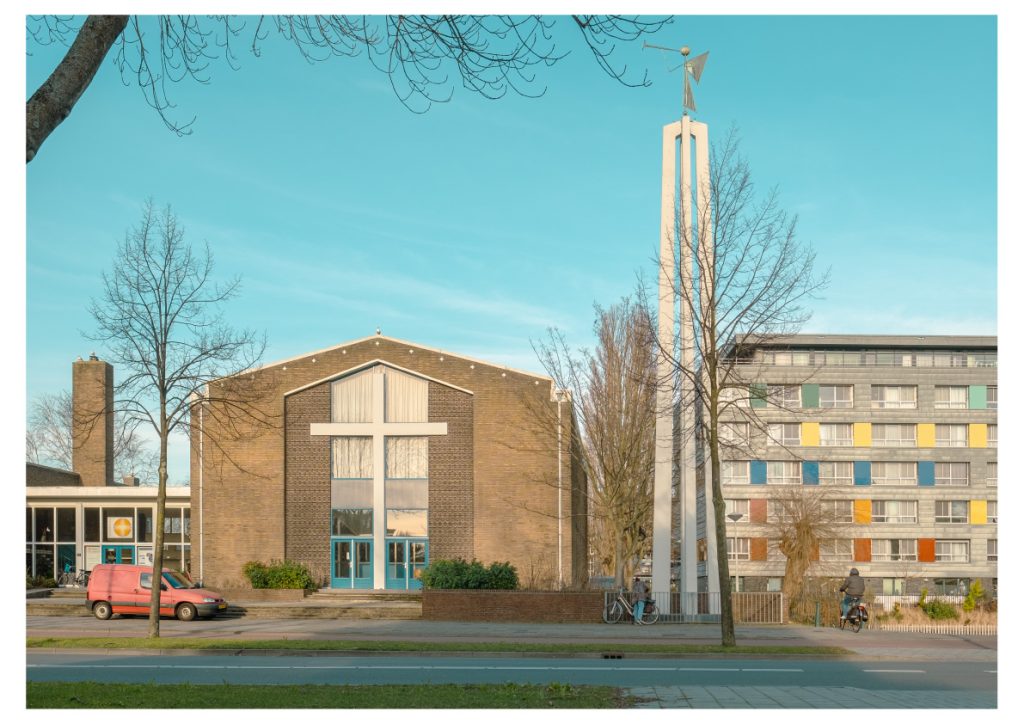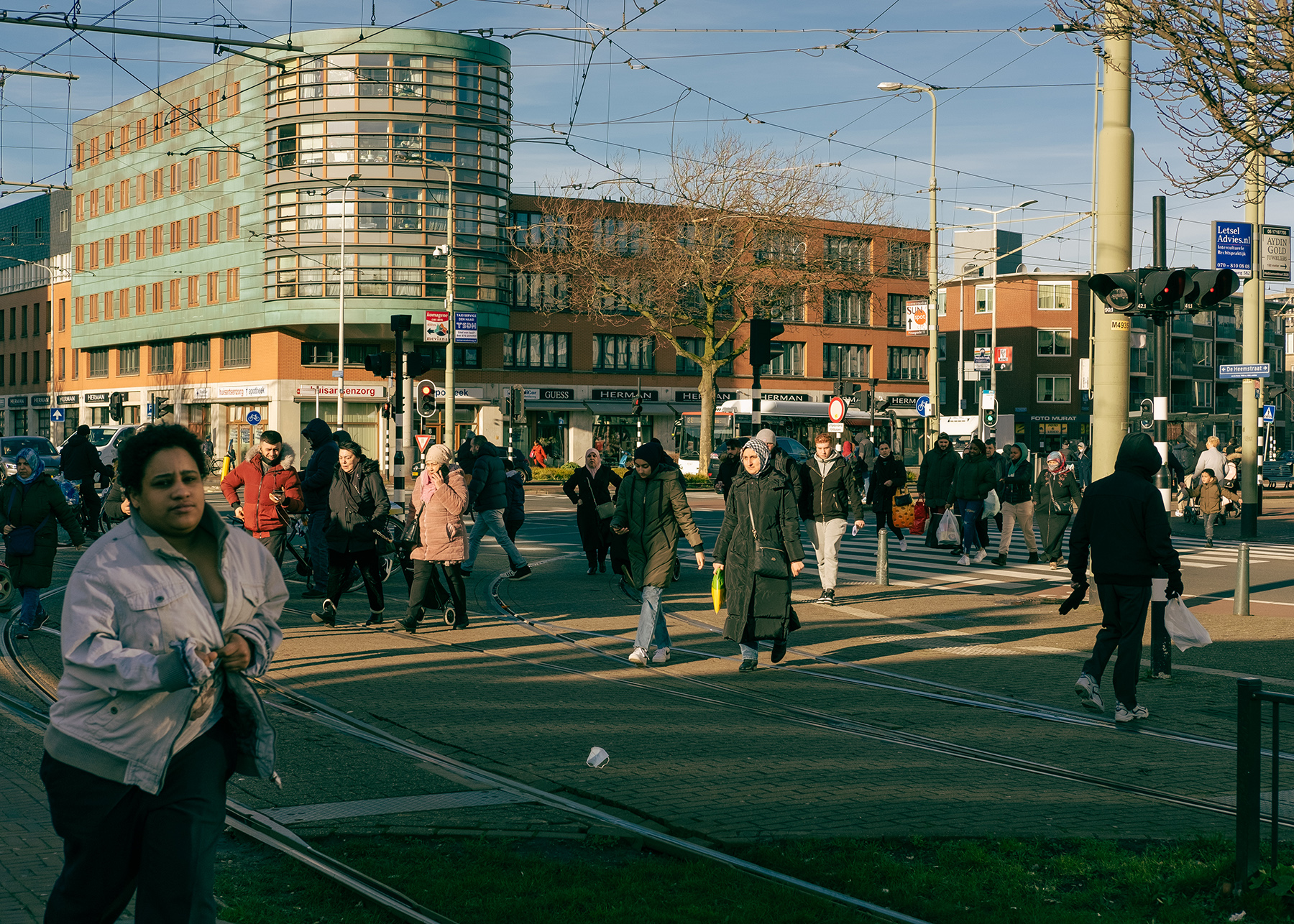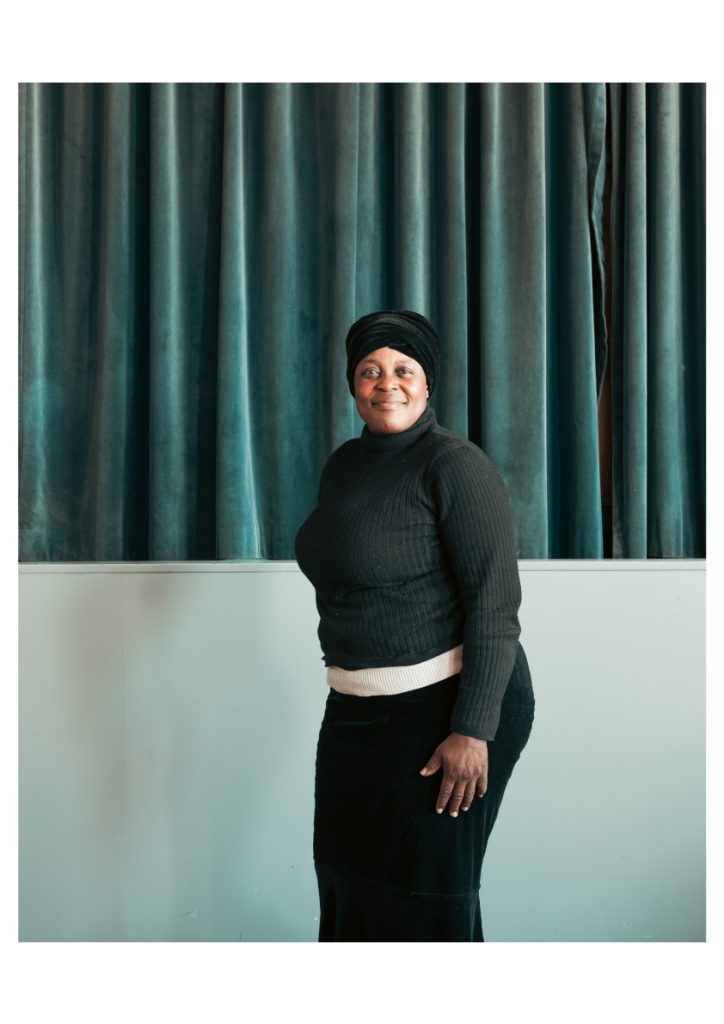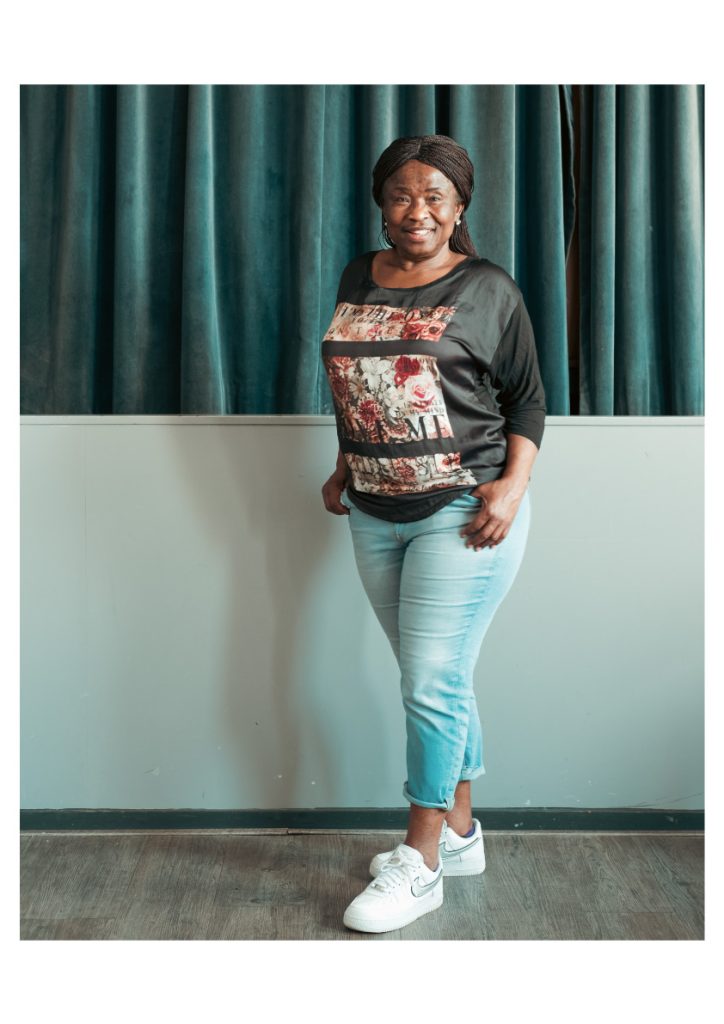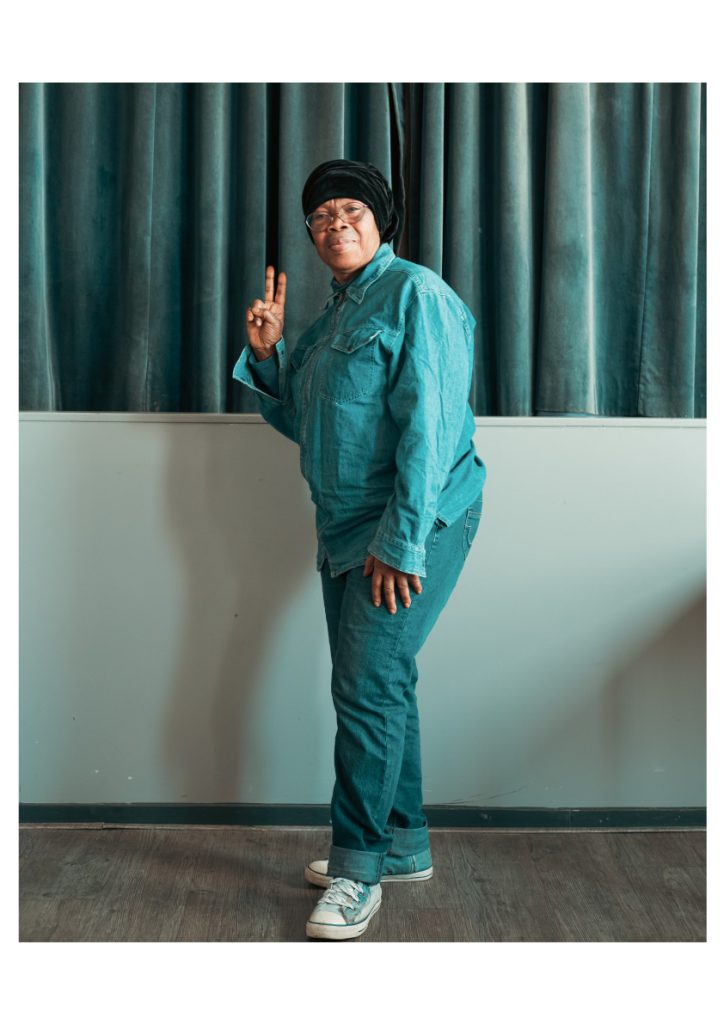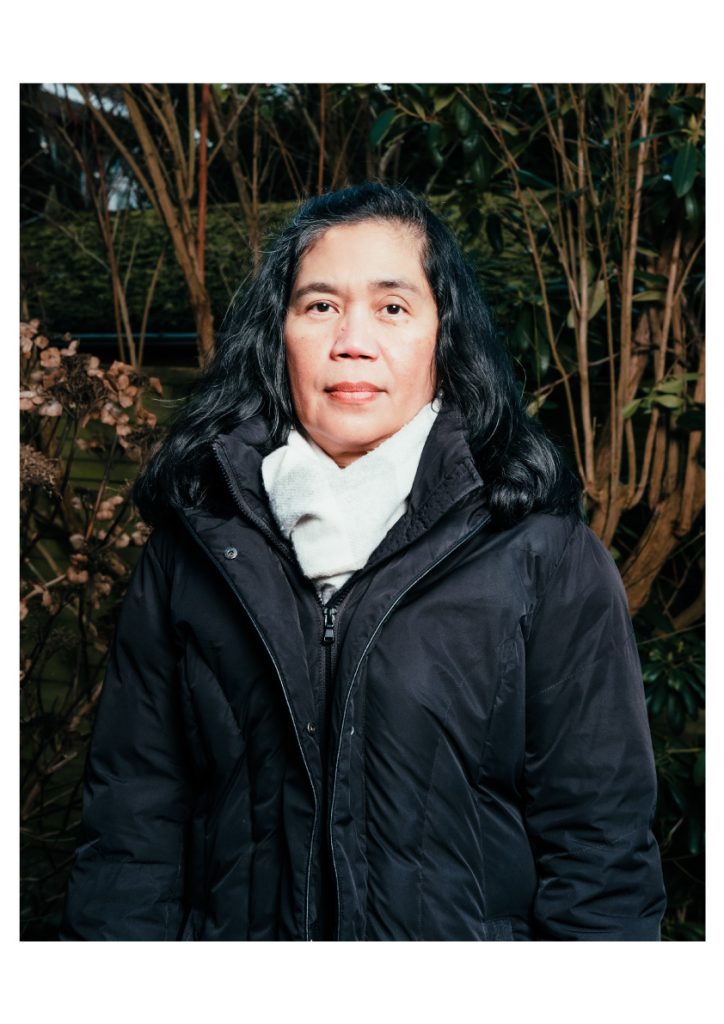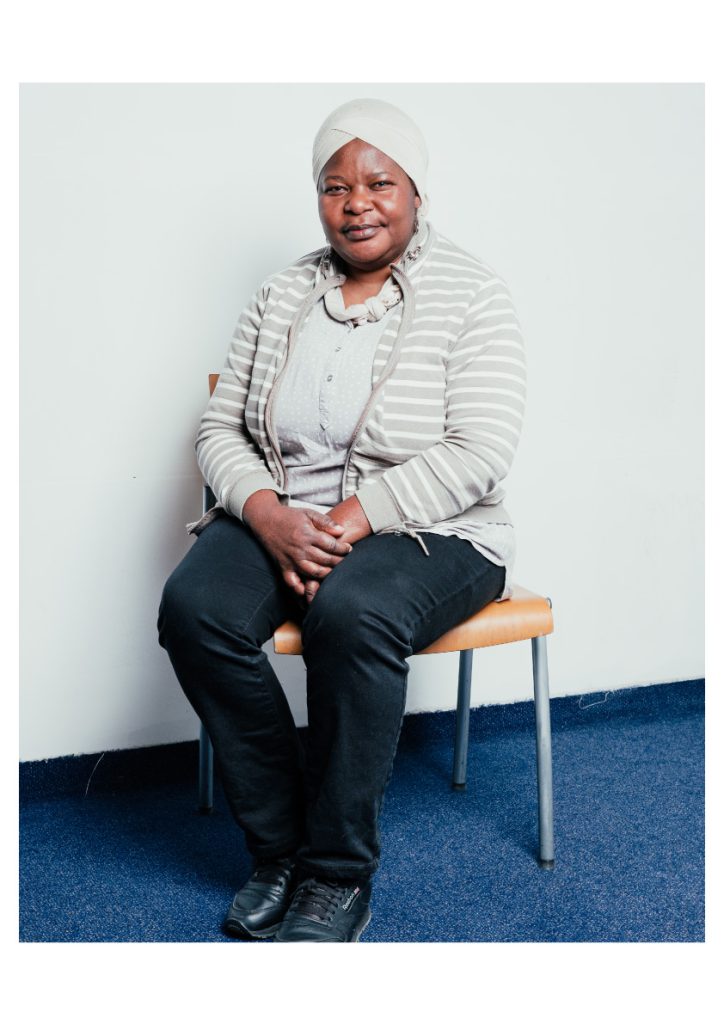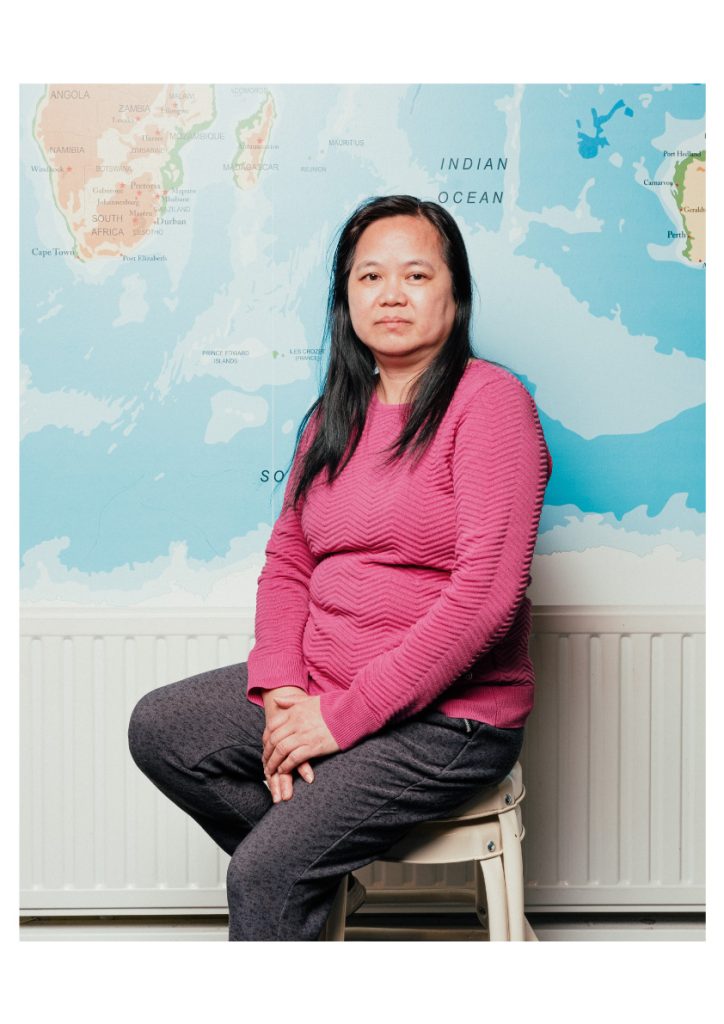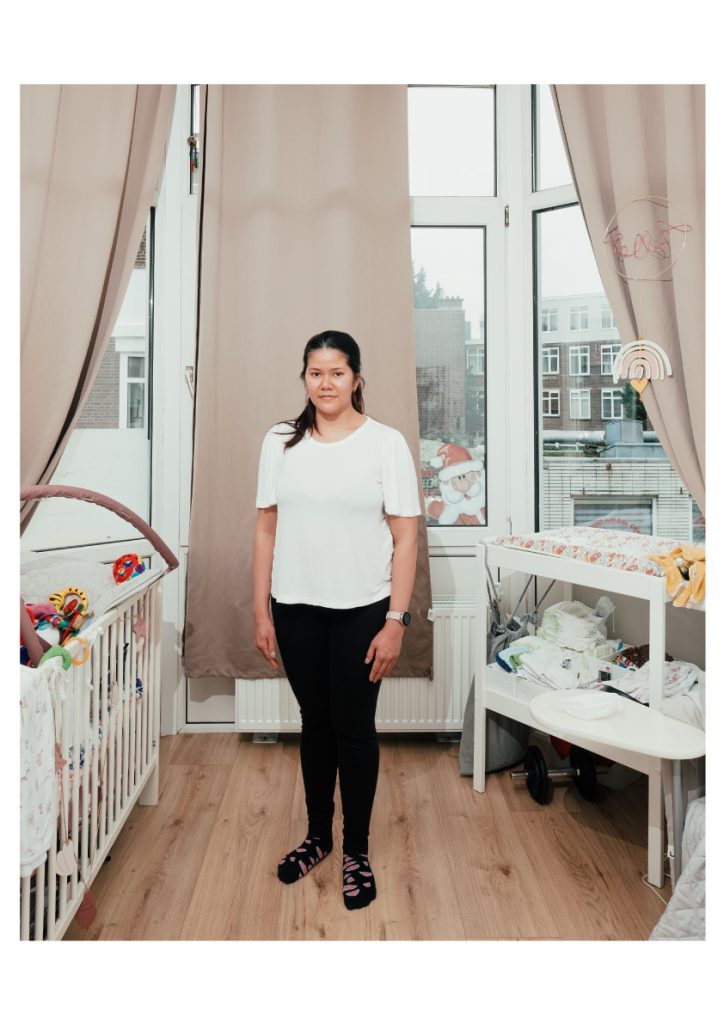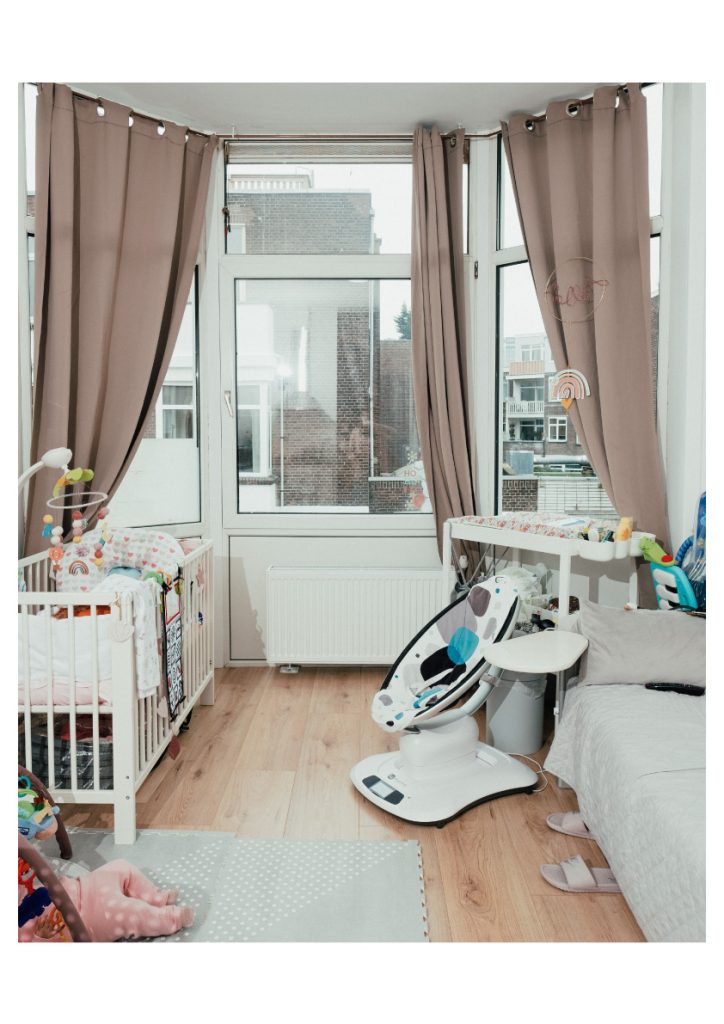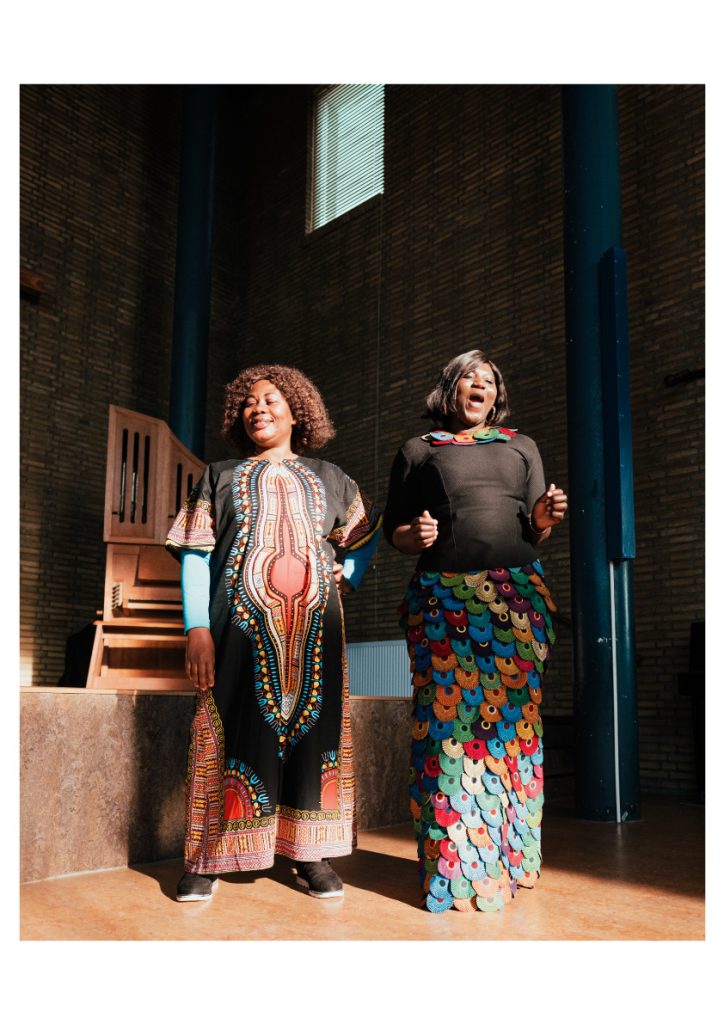Shadow of Colour
By Sara Azeem
PAKISTAN PHOTO FESTIVAL FELLOWSHIP 2021 PROJECT
During the years 2004-2006 there was a general call to abolish the Dutch state feminist agency and funds were directed to a commission for the Participation of Ethnic Minority Women. This in essence implied that Dutch women faced no problems anymore and now the attention had to be turned to immigrant women.
This project investigates the role of women of colour in present day European society who otherwise remain in the shadows, and yet perform almost all essential social reproduction labor that any modern society needs in order to function. I look at the social, familial, cultural and political lives of immigrant women in the Netherlands to understand the realities of being a woman of color in a country known to be progressive, tolerant and liberal.
During the years 2004-2006 there was a general call to abolish the Dutch state feminist agency and funds were directed to a commission for the Participation of Ethnic Minority Women. This in essence implied that Dutch women faced no problems anymore and now the attention had to be turned to immigrant women. A specific regulation in the Netherlands excludes domestic workers from most social and employment protection. It is the migrants from countries of Asia, Africa and Latin America who mostly constitute the domestic workforce and who pick up the society’s social reproduction needs at home and in the industry as cleaners, nurses, care providers to the elderly and children, as grunt workers at hotels and restaurants.
I examine the structural, social, political and labour arrangements that enable the celebration of Western feminism and their liberation chiefly built on the back of the labor of immigrant women. Tracing personal stories and migrations histories of individual immigrant women across various sectors of the Dutch economy, my work attempts to understand their lives, desires, aspirations, dreams, fears, doubts, struggles, and failures of those who are effectively women living in the shadow of colour.
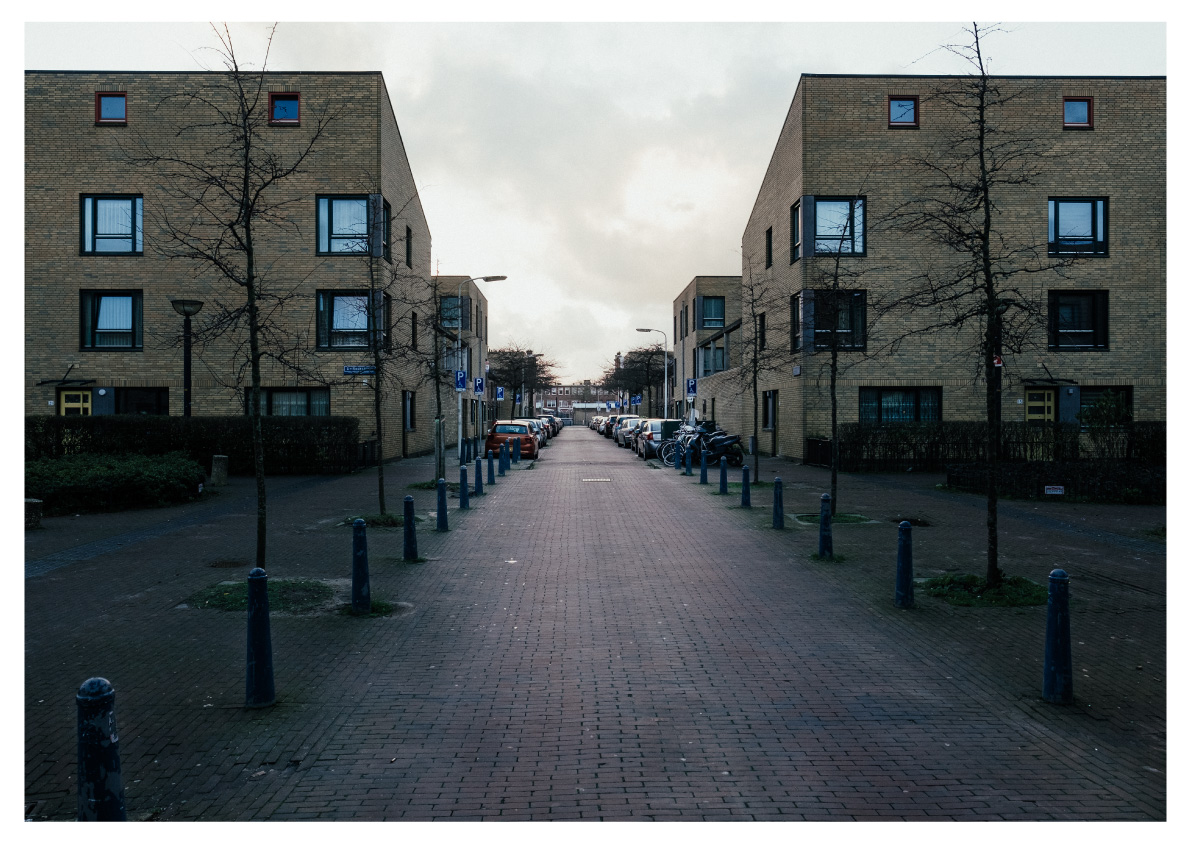
Claiming Space
Haagse Markt (the Hague Market) is a famous open market known for fresh and quality food items for low prices. Apart from groceries it also offers upholstery, kitchen utensils and clothing items for those on a budget. Apart from Middle Eastern and African diaspora many students also do their shopping here due to its proximity to universities and the city centre.
The Free Spirit
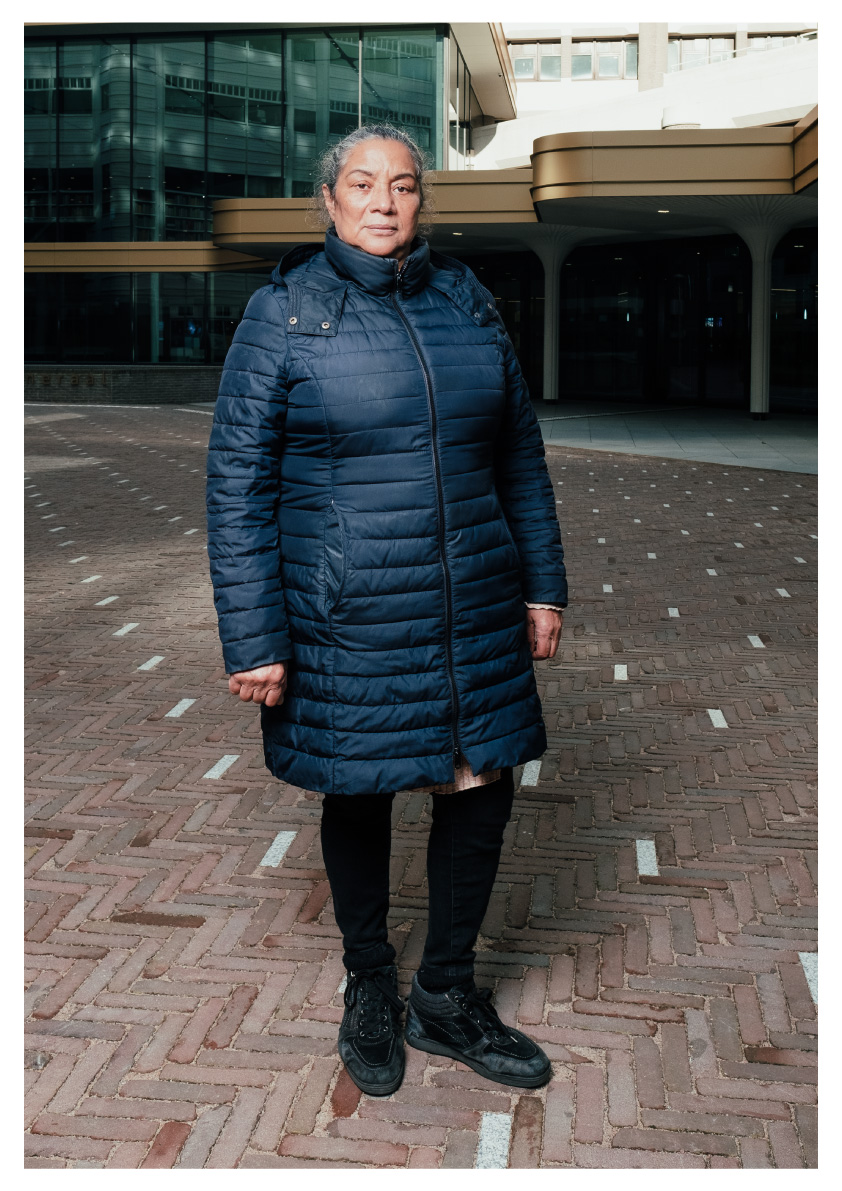
E came to the Netherlands thirty years ago in search of better opportunities. Having borne a child in her teenage she had learnt that life was not going to be easy for her. Initially she came to the Netherlands see her cousin who seemed to have a good life here. A few years later she was married to a Dutch man and had three kids with him. As a Dutch citizen she was also able to bring her eldest daughter here.
For some years now she has been working as a cleaner and employed by a company that provides cleaning services to corporate offices. She is sixty seven years old and will retire in a couple years. “I don’t take shit from anyone now. I work on my own terms and do not let people push me around. I see so many young cleaning women who have it so difficult nowadays. They are made to work longer hours without breaks and are mostly underpaid. I feel sorry for them. They have it very hard.”
Despite having her husband and her four children here who are now all independent and have good jobs she talks about going back to Colombia after retirement. She has been saving up and investing in Colombia all these years. “Marriage between foreign couple may not always work so I never wanted to cut off with my roots. I still maintain a bank account in Colombia and visit every year”. She tells me with pride. She feels that the society is more organised here and systems work better but she can never feel at home in the Netherlands the way she feels in Colombia.
After having sat with her out in the cold on a particularly windy day, I suggested we goto the nearby kiosk to get something warm to drink. She laughed and told me to not waste my money and brought me along to her office. She poured me a cup of hot chocolate and showed me photos of her younger self on her phone.
Kindness is Gangster
I entered the hallway looking for the event venue when I saw Yasmine with a bunch of keys jangling in her left hand, a phone held between her ear and shoulder, and right hand pointing somewhere giving directions to a man on the other side of the room. I did not know her yet but she certainly looked like the lady in charge and at that moment clearly had her hands full. I walked up to her and introduced myself and told her about my photo project. She welcomed me to the event and swiftly took a visiting card out of her wallet to give to me, ‘maybe you’d want to come back in the future’.
I saw her name and realised she was the Yasmine I had heard so much of from various people working in the field of labour rights.
In the following days when I started to volunteer at the Wereldhuis, I noticed that every other person that came for help would ask for Yasmine. Her popularity was not without reason: she is utterly resourceful, formally trained in law and deals with people with great respect and empathy. The wallpaper on her phone reads ‘kindness is gangster’- which is clearly a motto she lives by.
‘It wasn’t easy to build a career for me in this country and certainly not with the hijab. I still have to work twice or thrice as hard compared to my Dutch colleagues if I want to be seen for the work I do’, she tells me.
She came to The Netherlands from Indonesia to study law, and then return to her homeland. But she found love and has since settled here with husband and two children.
There is much more to Yasmine than meets the eye. Born into a multi faith family, she choose to follow in her mother’s Islamic faith instead of the Christian faith of her father. Her Dutch husband converted to Islam to marry her. She follows her faith with utmost dedication and at the same time is deeply respectful of people with other ideologies and faiths. Several years ago she helped set up the Indonesian Migrant Worker’s Union in the Netherlands (IMWU) and is still involved with several labour organisations aside from her full time work in the field of migrant rights. Yasmine’s late father served the East Flores region in Indonesia as a mayor and worked to realise several development projects improving the livelihood of the people of East Flores. Her mother’s mission was to provide healthcare for women. Following in her parents footsteps, Yasmine herself runs a small foundation back home in Indonesia alongside her full time job in The Netherlands.
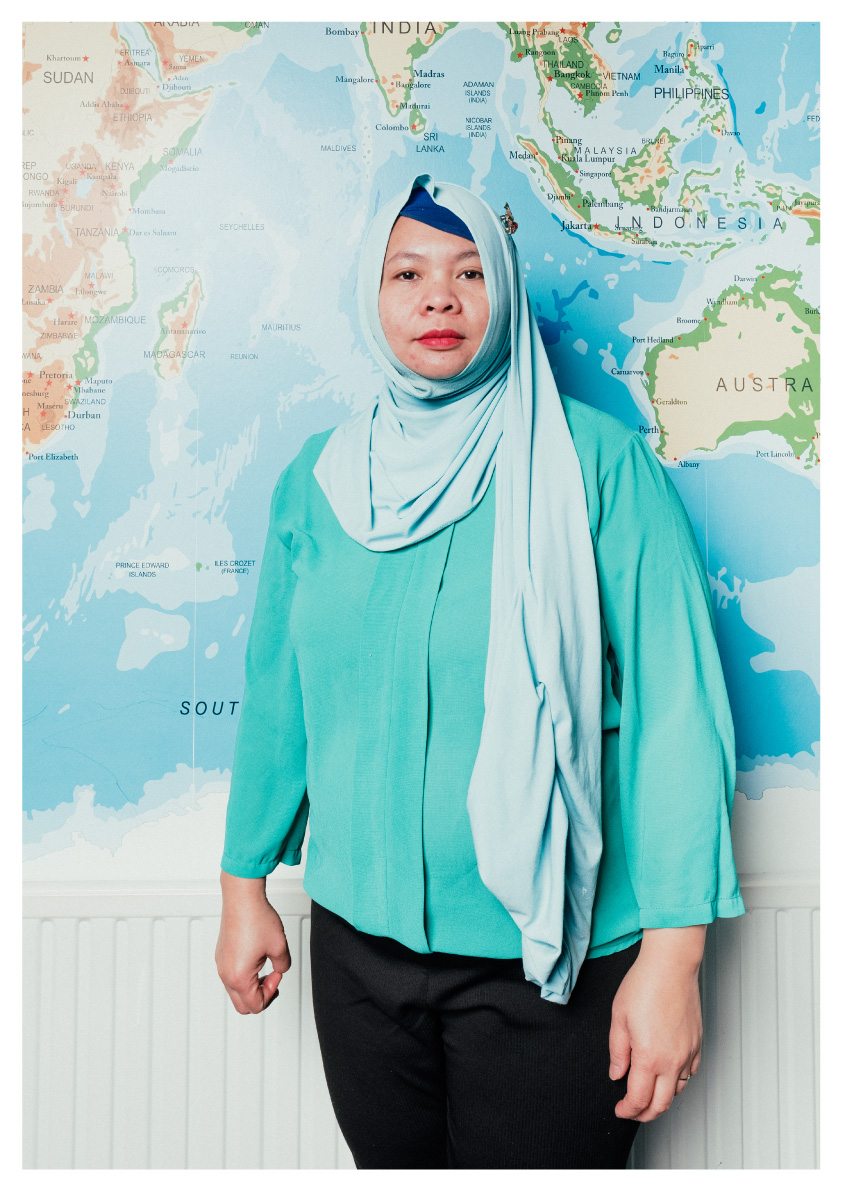
At charity events you’ll find her working with her sleeves rolled up alongside the kitchen staff, setting up dinner tables and cleaning up the kitchen afterwards. Given her hands on attitude, and her kind nature, it is no wonder that she is called upon by so many people for help and guidance. Many who approach her do so as they find themselves drowning in a world which to them only offers perils and unpredictability- the common lot of all undocumented, so called illegal migrants. For these people she serves as a sturdy beacon that provides respite and navigation, someone who will help them fight the threatening currents and eventually find their way ashore. She will do this without any hint of condescension, and only with kindness because kindness, after all, is Gangster!
Linda
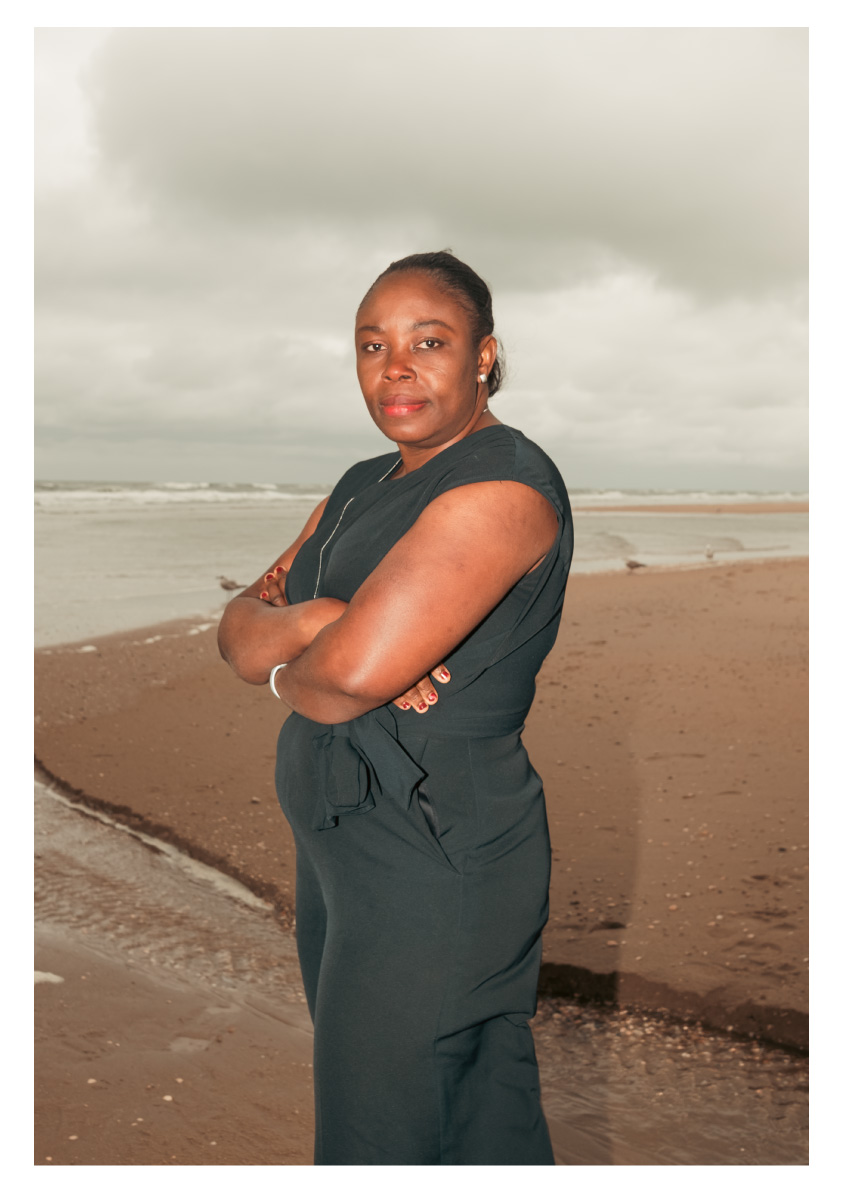
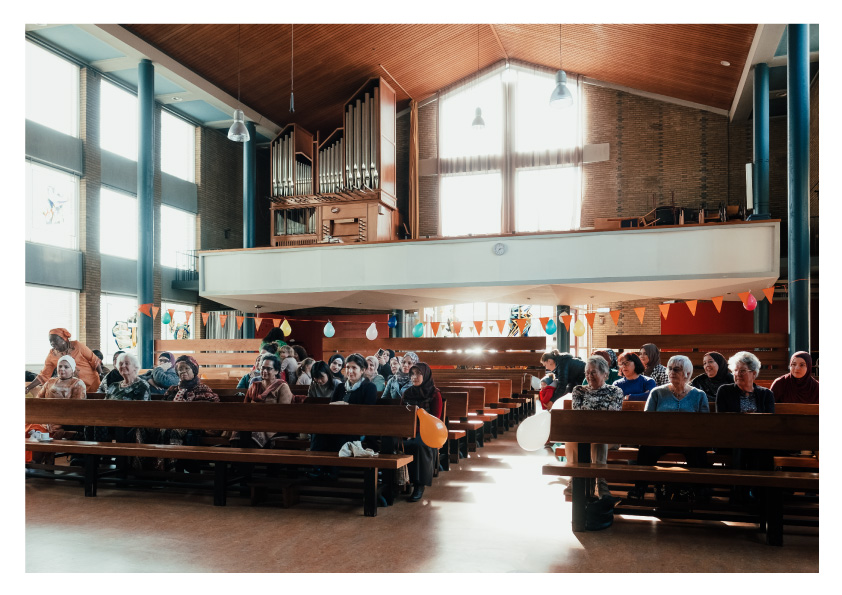
One of the first times I met Linda she was talking about chickens. In Cameroon, she told us, a certain part of chicken is reserved for the head of the house alone and no one else can have it. Her mother had told her that if women try to eat that part they’ll be cursed and would never be able to have kids. When Linda came to Europe she saw that it was easily available to everyone at the supermarkets and not too expensive either. She certainly wanted a piece of that ‘forbidden fruit’. She laughs and tells us she is the mother of three kids.
It was not easy getting in touch with Linda or the group she leads. The group congregates at a church a bit further out of the main city in a neighbourhood of mostly Turkish and some Eastern European population. There are soviet style apartment buildings all around and the Church itself does not look like it could inspire devotion. However, this is a place where Linda has been hosting the group of African women. It’s only been a year since Linda joined this place and since then they’ve been cooking and eating together once a week. “Everything comes out at the table”, she tells me. “We don’t just cook and eat, it’s a place for sharing stories, for finding friends and building relations”.
In a few months that I had been volunteering with the centre that supports undocumented people, I had hardly seen any African women. There are quite a few that come to this group and often confide in Linda. She tells me how suspicious these women tend to be of people here considering many of them were brought through trafficking. Some come with partners who then abandon them and they are left to fend for themselves in a completely foreign and hostile environment. The only place they trust is the church and that’s also how Linda met most of them. When she took charge of the group, a year into the pandemic, she went door to door to distribute flyers about sports activities she wanted to arrange. She feels strongly about raising awareness in women about their health and nutrition. Nobody was showing up for the activities so she stared visiting African churches to introduce herself to the pastors. Gradually the word spread and with the community she has now, she arranges several activities for these women to unwind and enjoy. Linda wants to change the way advocacy is being done for African women in The Netherlands but the works starts from within her organisation where she feels much needs to change in the way they understand integration and African migrants in Europe.
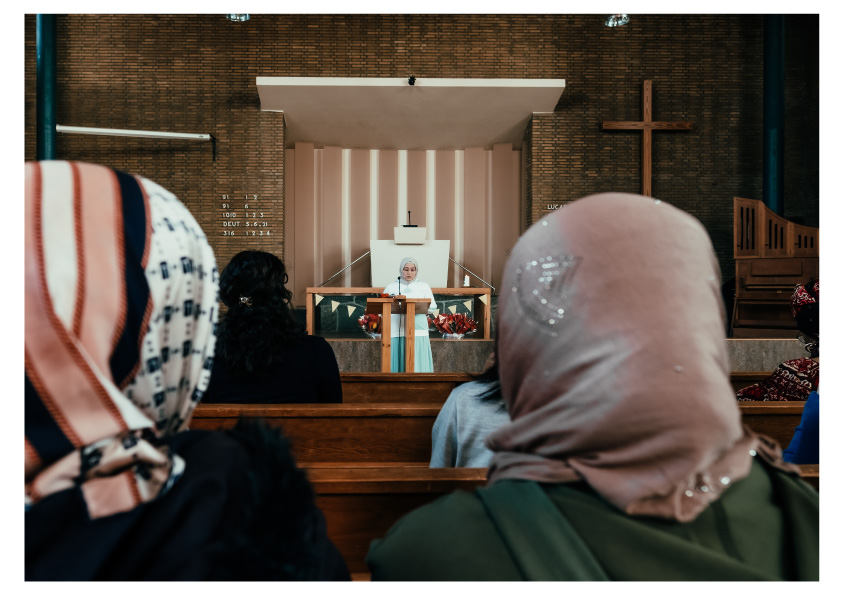
TEETH DO NOT SEE POVERTY*
“I don’t need money, I need love. But when you make it in the right way God will add money also. He knows I like money”, says Doris explaining how long it had been since she’s had intimate relations with a man. In this small group of middle aged African ladies who come together once a week to cook and have a meal together, Doris was sharing her thoughts on the health and spiritual benefits of sex, encouraging other ladies to make the best of the time they had left before menopause hits. “It’s a gift from God”, she says trying to convince Florence who believes in staying faithful to her husband even though they have been apart for 15 years. She has no idea when or if she’d be able to go back to Cameroon to be with her family. Doris being the realist that she is asks Florence to accept the reality of her situation and embrace the gift before it’s too late. “Sex is a part of woman’s life, you cant take it out and live like that. It’s not good.”
Mama chimed in vehemently agreeing with Doris. She told us how she was being treated for an illness the doctor suspected but then it came up during a treatment that she hadn’t been sexually active. Together they decided to stop all treatments until she was active again and after that “all the pain and diseases left my body”.
[…]the erotic offers a well of replenishing and provocative force to the woman who does not fear its revelation, nor succumb to the belief that sensation is enough. […]The erotic is a measure between the beginnings of our sense of self and the chaos of our strongest feelings. It is an internal sense of satisfaction to which, once we have experienced it, we know we can aspire. For having experienced the fullness of this depth of feeling and recognizing its power, in honour and self-respect we can require no less of ourselves.
Use of the erotic – Audre Lorde
Karibou bibi is a support group of sorts for women from African countries. Some of these women are victims of trafficking and others were fleeing violence in their countries. Some were able to find partners, got legalised and built decent lives here but still feel like outsiders in Dutch culture. At Karibou bibi they can be themselves and share their African heritage. Linda, the organiser of the group is a Cameroonian woman who they trust and adore.
The group started off as a small cooking class to show women how to use Dutch ingredients they received in the food packages they receive from the Church. There is such a huge difference between African and European cuisine. “The organisation pours so many resources into helping them without really helping them”, Linda expresses her frustration. These food packages were almost useless for them as they are not used to eating or cooking this type of food in Africa. Aside from fresh fruits and veggies, these packages mostly contain nut butters, crackers, some random Dutch snacks but almost no spice or seasonings so essential to African cuisine.
resist the urge to ask them why they came all that way for cloves and cardamom
if they were only going to put them into cheap wine at christmas
a peacekeeper’s guide to colonialism – Jackie Ashkin
The meal is enjoyed with a good amount of banter about whiteness, Florence’s clairvoyance, and another sermon by Doris who is enthusiastic about sharing her life lessons on living alone in the Netherlands and educating ladies about menopause. It was interspersed with some dancing and adoration of the curvy African body type.
At this point I had spent a few months working as a volunteer at an organization supporting illegalized migrants – those have been for one reason or another not granted a residence permit by the Dutch authorities. I had met and gotten to know many people here but kept feeling that I can hardly pierce the power dynamic that comes from being in a position that gives help. The fact that I live here with a legal residence permit with access to healthcare etc. is enough to put us worlds apart. Whether I look like them or not, speak their language or not, I represent the giver so they’ll always show the side of them that is in need not the one that is in charge. At Kariboe Bibi I meet them on their turf, on their terms. An intimate invite only setting. As a guest counting on their hospitality. Every now and then a Dutch staff member of the Church passes through the room and I can see the ladies putting on a different face – reserved and inscrutable. I realised then what a privilege it was to be in the company of these women and experience the pride with which they owned their femininity and their Africanness.
*african proverb
